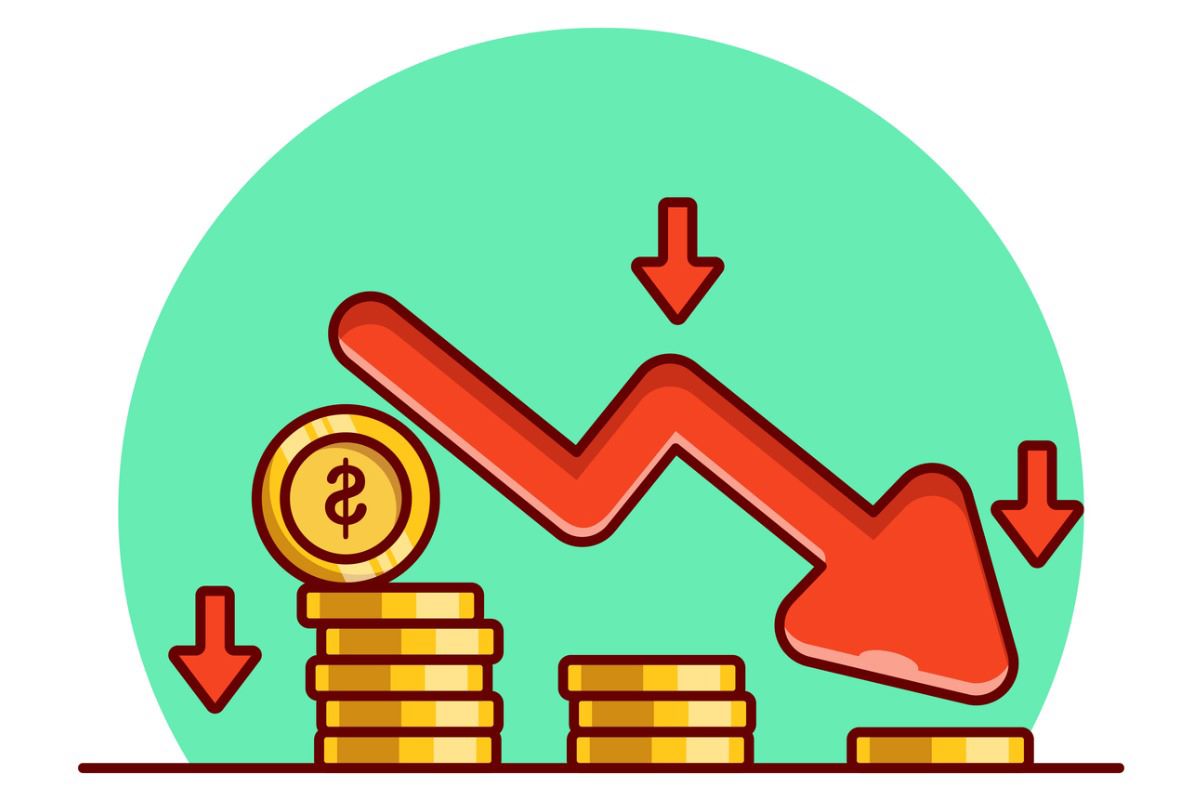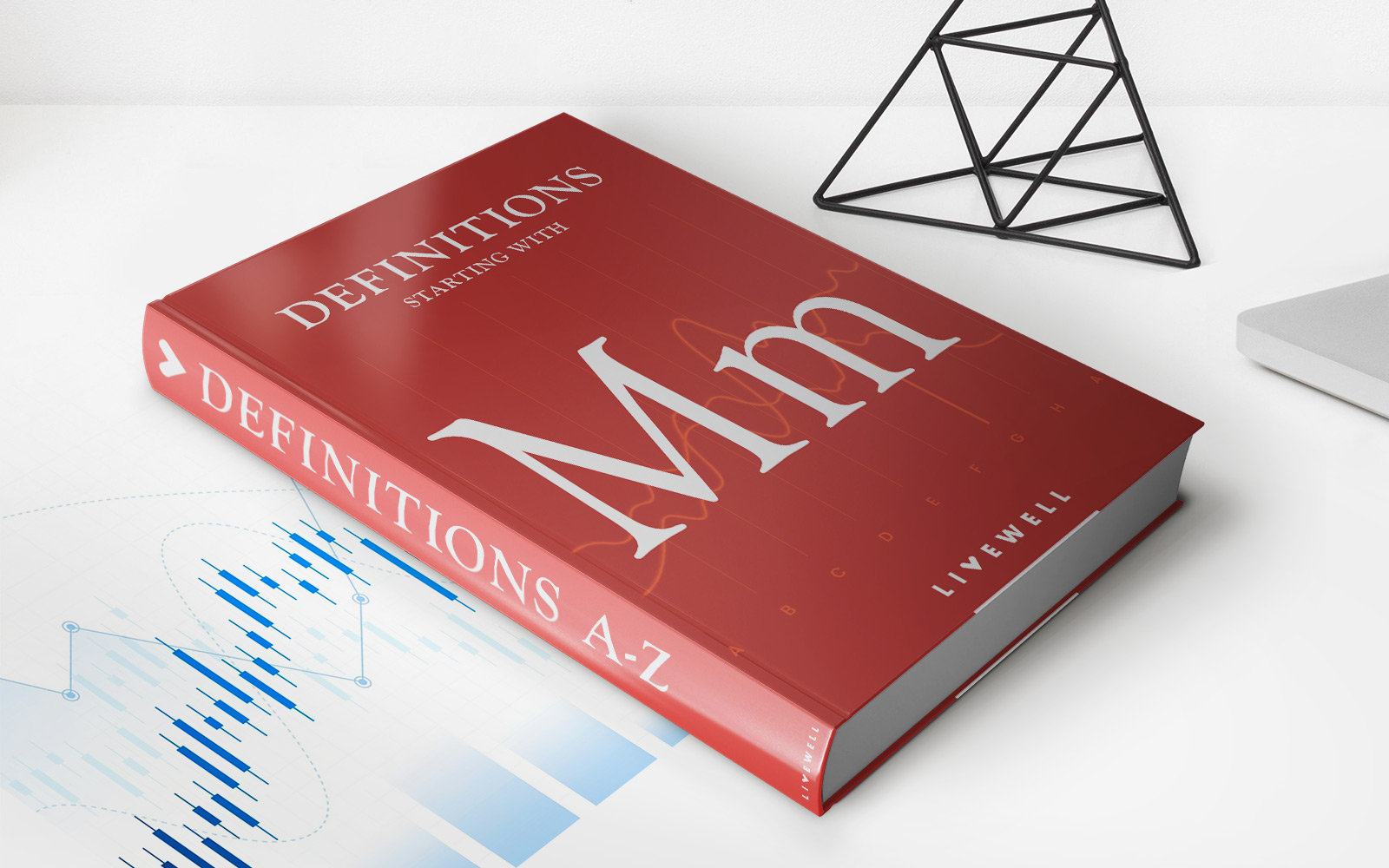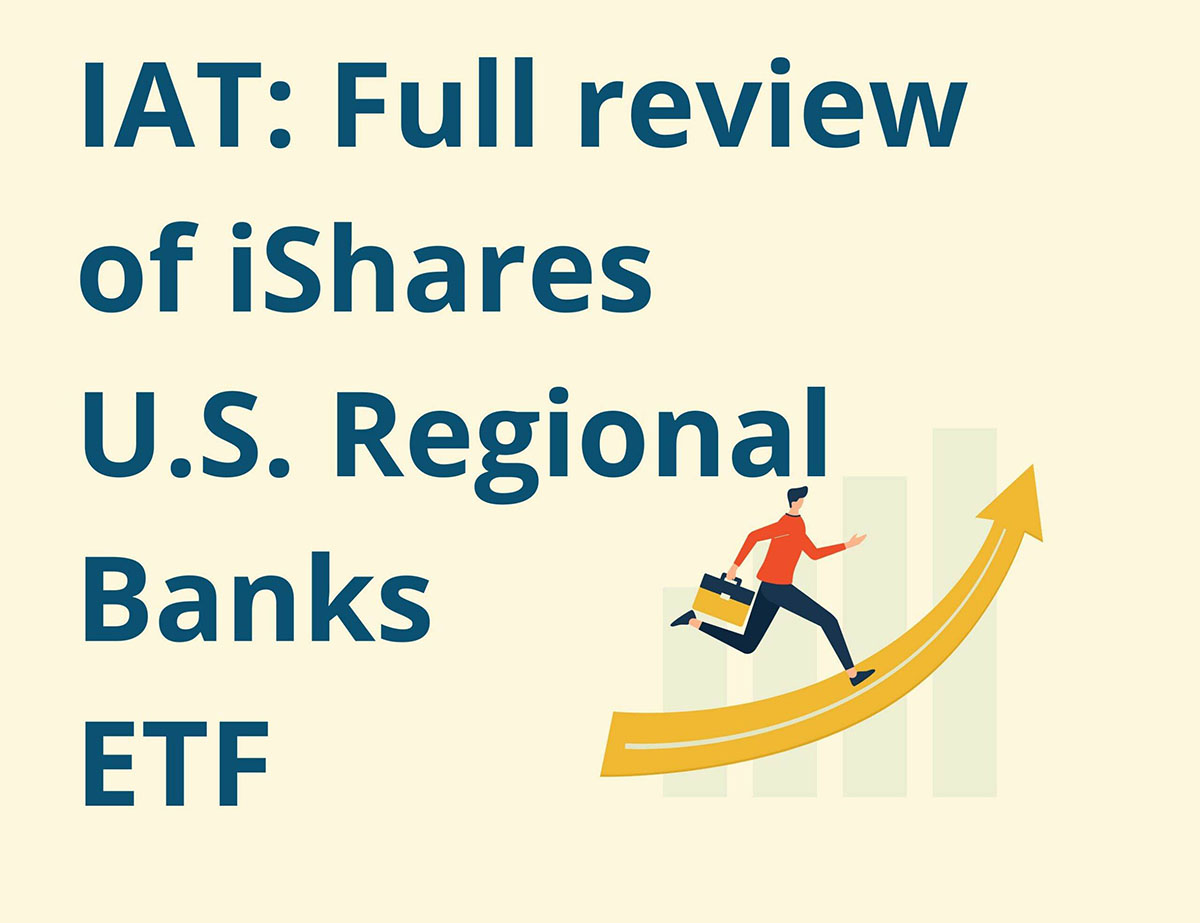

Finance
What Jobs Have Pension
Published: November 27, 2023
Explore various finance jobs that offer pensions and secure your financial future. Find out which jobs in the finance industry provide retirement benefits and plan for a comfortable life after retirement.
(Many of the links in this article redirect to a specific reviewed product. Your purchase of these products through affiliate links helps to generate commission for LiveWell, at no extra cost. Learn more)
Table of Contents
Introduction
When it comes to planning for retirement, one of the key considerations is having a pension. A pension provides financial security during your golden years by offering a steady income stream after you stop working. While not all jobs offer pensions, there are several professions that do provide this benefit to their employees. In this article, we will explore the various jobs that commonly come with a pension.
A pension is essentially a retirement savings plan that is funded by both the employer and the employee. The employer contributes a portion of the employee’s salary into a pension fund, which is then invested to grow over time. Upon retirement, the employee receives regular payments from the pension fund to support their living expenses.
Pensions are often associated with public sector jobs, such as government employees and teachers. However, there are private sector jobs that also offer pensions, although they may be less common. Let’s delve into the different types of jobs that typically come with a pension.
Public Sector Jobs with Pension
Public sector jobs, which include government and civil service roles, are known for offering generous pension benefits. These jobs usually provide a defined benefit pension plan, where the employee’s retirement income is based on a formula that takes into account factors such as salary and years of service.
One of the most common public sector jobs with pensions is teaching. Teachers at public schools, colleges, and universities often enjoy the security of a pension, which helps them plan for their retirement years. The specific details of the pension plan may vary depending on the educational institution and the state or country in which the teacher is employed. However, the general concept remains the same – teachers contribute a portion of their salary towards their pension fund, and upon retirement, they receive regular payments based on their years of service and final average salary.
Another public sector job that typically offers a pension is working for the government. This includes positions in federal, state, and local government agencies. Government employees often have access to retirement plans, such as the Federal Employees Retirement System (FERS) in the United States. FERS provides a pension benefit based on a formula that takes into account an employee’s years of service and salary history. The pension is supplemented by contributions to the Thrift Savings Plan (TSP), which is similar to a 401(k) retirement savings account.
Furthermore, public safety jobs such as law enforcement and firefighter positions commonly come with pensions. These roles often involve significant risk and require dedicated professionals to ensure the safety and security of the community. As a result, pensions are offered as an incentive and reward for their service. The specifics of the pension plans may differ depending on the jurisdiction and agency, but they generally offer a reliable income source for retired law enforcement officers and firefighters.
In summary, public sector jobs, including teaching, government positions, and public safety roles, are known for providing generous pension benefits. These pensions help to ensure financial security for individuals who dedicate their careers to serving the public.
Private Sector Jobs with Pension
While pensions are more commonly associated with public sector jobs, there are still some private sector jobs that offer this valuable retirement benefit. However, it’s important to note that private sector pensions have become less common in recent years, with many companies shifting towards 401(k) plans and other retirement savings options. Nonetheless, there are still a few industries and professions where employees can find private sector jobs with pensions.
One industry that is known for offering pensions in the private sector is the healthcare industry. Healthcare professionals, such as doctors, nurses, and other medical personnel, often have access to pension plans provided by hospitals, medical centers, and healthcare organizations. These pensions help to attract and retain top talent in the highly competitive field of healthcare, providing a sense of financial security for those who dedicate their careers to improving the well-being of others.
Additionally, certain unionized industries, particularly those with strong labor unions, may have private sector jobs with pensions. Unions negotiate on behalf of their members to secure competitive compensation and benefits, including retirement plans. Industries such as manufacturing, transportation, and utilities often have unionized workers who enjoy the benefits of a pension plan. These pensions provide stability and peace of mind for workers who have dedicated their careers to these demanding fields.
Another area where private sector jobs with pensions can be found is in executive-level positions within corporations. High-ranking executives, such as CEOs and top-level management, may have access to pension plans as part of their compensation packages. These pensions often offer substantial benefits to executives who have dedicated many years to the success of the company. However, it’s worth mentioning that the availability of these pension plans and their specifics can vary greatly depending on the company and industry.
While private sector jobs with pensions may be less common than in the public sector, they still exist in certain industries and professions. Healthcare professionals, unionized workers, and corporate executives can often find opportunities for pension benefits, providing them with a reliable income source in their retirement years.
Teachers and Education Professionals
One of the most common professions associated with pensions is teaching. Teachers and education professionals play a vital role in shaping the minds of future generations, and many educational institutions recognize this by providing pension benefits. The specific details of the pension plans for teachers may vary depending on the country, state, or school district, but they generally provide a reliable source of income in retirement.
In the United States, public school teachers often participate in state-run pension systems. These pension plans, such as the Teachers’ Retirement System (TRS) or the Public Employees’ Retirement System (PERS), allow teachers to contribute a portion of their salary throughout their career, and upon retirement, they receive a pension based on a formula that considers factors such as years of service and final average salary. This provides teachers with financial security as they transition into retirement.
In other countries, such as the United Kingdom, teachers also have access to pension schemes. The Teachers’ Pension Scheme in the UK offers similar benefits, with contributions deducted from a teacher’s salary and a defined pension payment upon retirement. The scheme is designed to provide teachers with a secure income during their retirement years.
Teachers and education professionals contribute to the well-being of society by educating and inspiring students. As a result, the provision of pensions acts as a form of recognition and appreciation for their valuable contributions. By offering pension benefits, educational institutions help ensure that teachers can enjoy a comfortable and financially stable retirement.
Military Personnel
Military service is not just a job, but a calling that requires immense sacrifice, dedication, and commitment. To recognize the service and to provide financial security to military personnel in their retirement years, many countries offer pensions for those who serve in the armed forces.
In the United States, military personnel are eligible for retirement benefits through the Department of Defense’s military pension system. The system is known as the Blended Retirement System (BRS) and was implemented in 2018. Under the BRS, service members can contribute to a Thrift Savings Plan (TSP), which is similar to a 401(k) retirement savings account. Additionally, after 20 years of service, military personnel become eligible for a monthly pension based on a formula that considers the length of service and average highest 36 months of pay.
Similarly, other countries across the globe provide pension benefits to military personnel. These pensions ensure that the men and women who dedicate their lives to protecting their country have financial security when they retire. The specific details of military pensions can vary depending on the country and the rank of the service member, but the underlying goal remains the same – to recognize and support those who serve their nation.
As military personnel often face dangerous and demanding circumstances, pensions act as an essential component of their overall compensation package. By offering pensions, governments can attract and retain skilled and dedicated individuals in the military, knowing that their service will be rewarded with a pension that will support them in their retirement.
Law Enforcement and Firefighters
Law enforcement officers and firefighters play a crucial role in maintaining the safety and security of our communities. To recognize their commitment and sacrifice, many jurisdictions offer pension benefits to these dedicated professionals.
In the United States, law enforcement officers and firefighters often have access to pension plans through their respective departments or agencies. These pensions are typically defined benefit plans that provide a predetermined monthly payment based on factors such as years of service and final average salary. The pensions act as a safety net, ensuring that these brave individuals will be financially supported during their retirement years.
Law enforcement and firefighter pension plans may also include provisions for early retirement in recognition of the physically demanding and sometimes dangerous nature of their work. These provisions allow officers and firefighters to retire earlier than the traditional retirement age with reduced or no penalty to their pension benefits.
Similarly, other countries recognize the unique contributions and risks associated with these professions and offer pension benefits to their law enforcement officers and firefighters. These pensions provide a much-needed financial cushion for individuals who have dedicated their careers to protecting and serving their communities.
By offering pensions, governments and jurisdictions can attract and retain highly skilled individuals in law enforcement and firefighting. Pensions act as a form of reward and incentive, ensuring that these professionals are provided with the financial security they deserve for their dedication and commitment to public safety.
Unionized Workers
Unionized workers, particularly those in industries with strong labor unions, often enjoy a range of benefits and protections negotiated on their behalf. One significant benefit that unionized workers may have is access to a pension plan.
Labor unions are organizations that represent and advocate for the rights and interests of workers. These unions negotiate collective bargaining agreements with employers to establish terms and conditions of employment, including compensation and benefits. Pensions are often a key component of these agreements, providing unionized workers with a reliable retirement income.
Unionized workers in industries such as manufacturing, transportation, telecommunications, and utilities may have access to pension plans negotiated through their unions. These pensions are typically defined benefit plans, where the pension payment amount is based on factors such as years of service and final average salary. The exact details of the pension plans vary depending on the specific union and industry, but the goal is to provide retiring workers with financial security and stability.
Having a pension can make a significant difference in the lives of unionized workers. It offers them peace of mind, knowing that their hard work and contributions over the years will be rewarded with a reliable income stream in retirement. Pensions also serve as an incentive for workers to join unions and benefit from the collective bargaining power that unions provide.
Overall, unionized workers have an advantage when it comes to pensions. Through collective bargaining, unions strive to secure fair compensation and benefits for their members, including pension plans that provide long-term financial security.
Healthcare Professionals
Healthcare professionals, such as doctors, nurses, and other medical personnel, play a vital role in caring for the health and well-being of individuals. Many healthcare organizations recognize the importance of attracting and retaining top talent in the industry, which is why they often offer pension benefits to their employees.
In the United States, healthcare professionals may have access to pension plans provided by hospitals, medical centers, and healthcare organizations. These pension plans are designed to provide a reliable income source for healthcare professionals during their retirement years. The specific details of these pension plans can vary depending on the organization, but they generally follow a defined benefit structure, where the retirement income is based on factors such as years of service and final average salary.
In other countries, healthcare professionals also enjoy pension benefits. National healthcare systems or private healthcare organizations may offer pension schemes as part of their employment packages. These pensions are key to attracting and retaining skilled healthcare professionals in a competitive industry, ensuring that they have financial security in their retirement.
Given the demanding nature of the healthcare profession and the critical role healthcare professionals play in society, pensions act as a form of recognition and reward for their dedication and service. These pensions provide healthcare professionals with peace of mind, knowing that their hard work and contributions will be valued and supported even after they retire.
Overall, pensions for healthcare professionals are an important component of their overall compensation package. By offering pensions, healthcare organizations can attract and retain talented individuals, which ultimately benefits patients and the healthcare industry as a whole.
Government Employees
Government employees are known for enjoying a range of benefits, one of which is often a pension plan. These plans are designed to provide government employees with a reliable income during their retirement years, ensuring financial security after a lifetime of public service.
In many countries, government employees have access to pension systems that are specific to their sector. These systems typically follow a defined benefit structure, where the retirement income is based on factors such as years of service and final average salary. Government pension plans are often overseen by specialized agencies or departments, ensuring that employees receive the benefits they are entitled to upon retirement.
Government employees eligible for pensions may include civil servants, administrative staff, law enforcement officers, and many other roles within government departments at the local, state, or federal level. The specific eligibility criteria and pension plan details can vary depending on the country and the government entity, but the overarching goal remains the same – to provide financial security for government employees in their retirement.
By offering pensions, governments attract highly skilled individuals to public service as they can be assured of a stable income even after they stop working. Pensions also serve as a means to retain experienced employees, as the promise of a secure retirement entices them to continue serving in government positions for the long term.
The availability of pension plans for government employees demonstrates the recognition that their service and dedication deserve adequate remuneration and protection. It ensures that government employees can retire with dignity and enjoy the rewards of their contributions to society.
Corporate Executives
Corporate executives, such as CEOs and top-level management, often occupy high-pressure and high-responsibility positions within companies. To attract and retain top talent in these roles, many companies offer executive-level compensation packages that include pension benefits.
While pensions for corporate executives may not be as widespread as in the public sector or some other industries, they are still offered by certain companies, particularly in larger corporations. These pension plans are often customized and catered to the specific needs and requirements of executives.
The details of executive pensions can vary significantly depending on the company and industry. Some companies may offer defined benefit plans, where the pension payment is determined by factors such as years of service and salary history. Others may offer defined contribution plans, such as executive deferred compensation programs, where executives can set aside a portion of their salary or bonuses for retirement savings, often with additional employer contributions.
Executive pensions are typically structured to provide executives with a reliable income stream during their retirement years. The goal is to ensure that executives are rewarded for their years of service and contributions to the company’s success. These pensions act as a form of recognition and incentive for executives to remain dedicated and committed to the organization’s growth and profitability.
It’s important to note that the availability and specifics of executive pensions can vary greatly depending on the company’s policies and practices. Executive compensation, including pensions, is often subject to negotiations and performance-based incentives.
Overall, executive pensions play a role in attracting and retaining top-tier talent in the corporate world. By offering these benefits, companies can demonstrate their commitment to valuing and rewarding the contributions of their executives, ensuring a secure and prosperous retirement for those who have dedicated their careers to corporate leadership.
Conclusion
Pensions play a crucial role in providing financial security for individuals in their retirement years. While not all jobs offer pensions, there are several professions where this benefit is commonly provided. Public sector jobs, such as teaching, government positions, and public safety roles, are often associated with pensions. Teachers and education professionals help shape future generations and enjoy the security of pension plans provided by educational institutions and governments. Military personnel, including those who serve in the armed forces, are also eligible for pension benefits as a recognition of their dedication and sacrifice.
Beyond the public sector, there are private sector jobs that offer pensions, although they may be less common in today’s workforce. Healthcare professionals, unionized workers, and corporate executives can still find opportunities for pension benefits. Healthcare organizations recognize the importance of attracting and retaining skilled professionals and offer pensions to ensure their financial security in retirement. Unionized workers, particularly in industries with strong labor unions, negotiate pension plans to provide stability and peace of mind. Corporate executives, in larger companies, may have customized pension plans as part of their overall compensation packages.
In conclusion, while the availability of pensions may vary across different professions and industries, they hold significant value in ensuring a comfortable retirement. Whether it’s through public sector jobs, private sector professions, or specialized roles, pensions contribute to the financial well-being of individuals who have dedicated their careers to serving others, protecting the community, or contributing to the success of their organizations. It’s important for individuals to understand the benefits and eligibility criteria within their specific profession to plan effectively for their future and enjoy a secure retirement.














